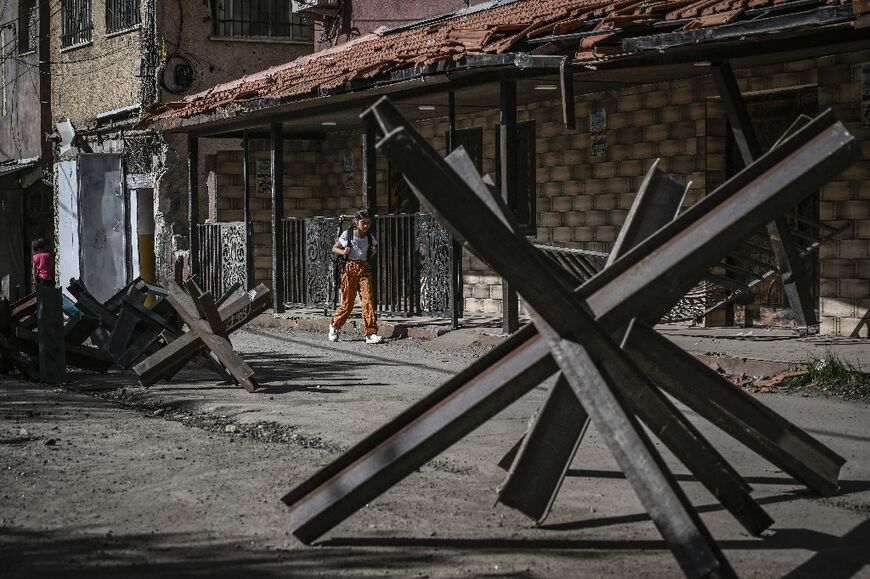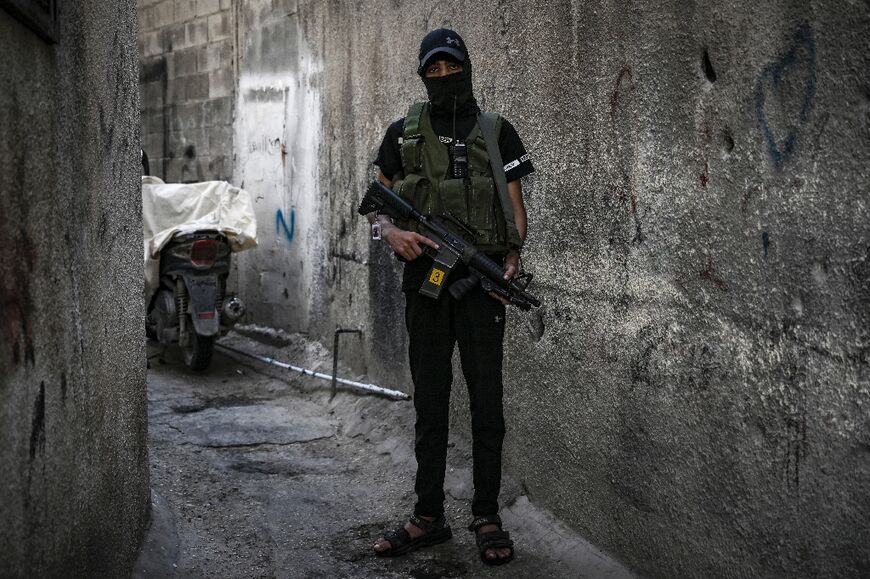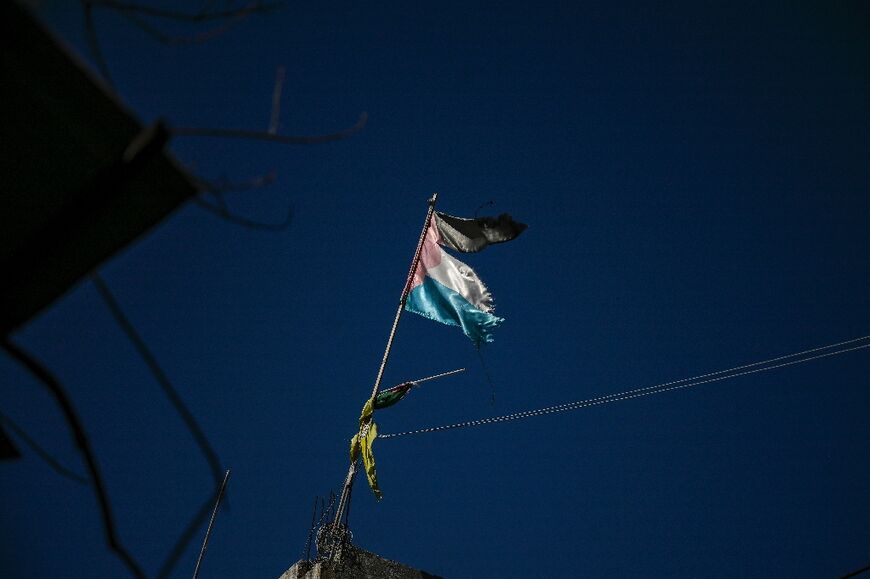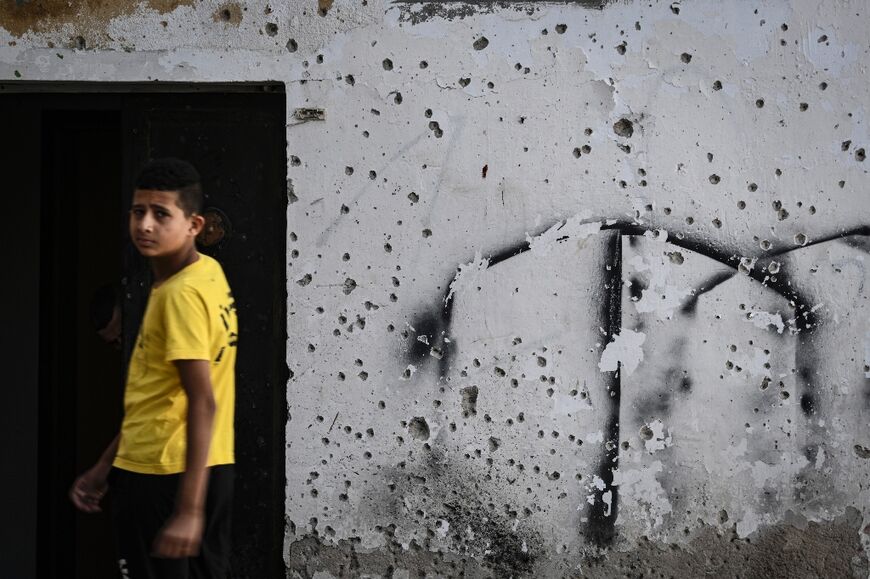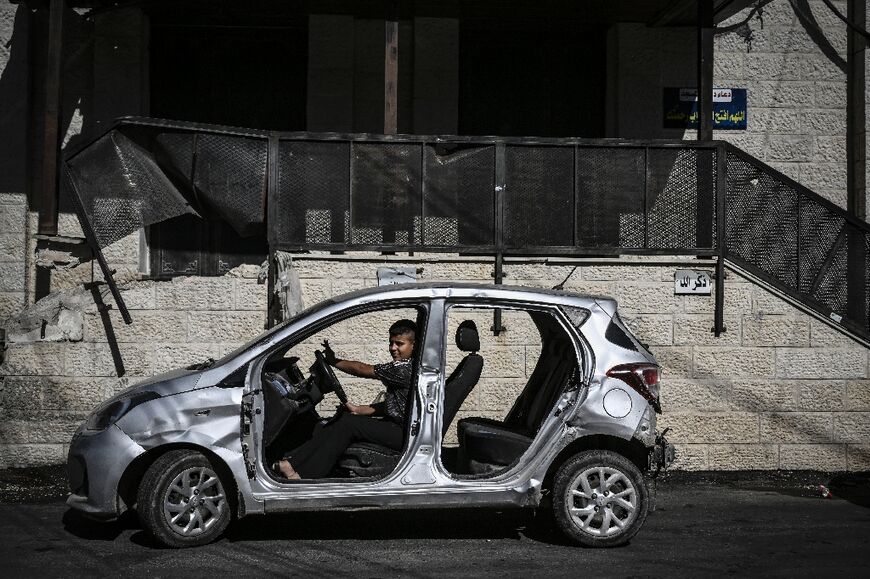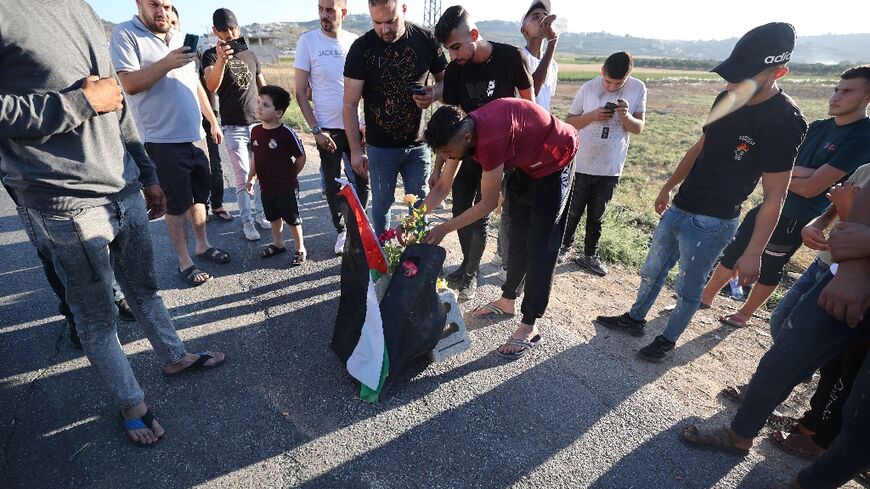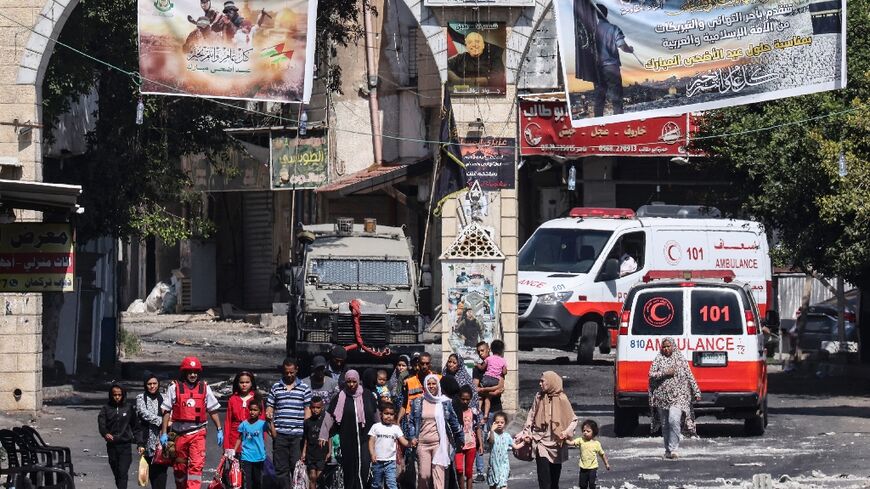Israel-Hamas war lures next generation of West Bank militants
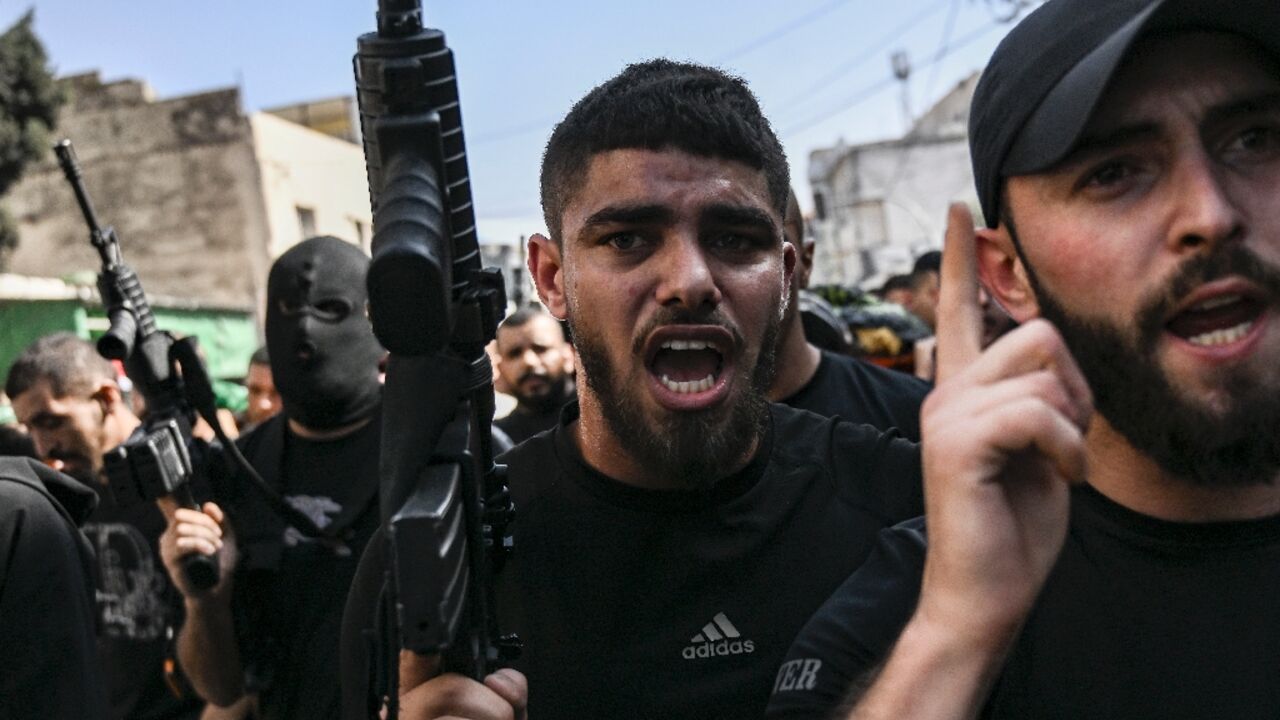
Around the landmark mosque in the Jenin camp for Palestinian refugees, scenes of spiking violence in the occupied West Bank play out in rhythmic fashion.
Israeli forces make increasing raids, militants battle them in the streets, and posters of the dead are papered over pictures of previous "martyrs", as the tempo of a decades-old conflict is supercharged by the Israel-Hamas war.
"When there are funerals in the mosque, generally, sermons are given that talk about love, compassion and peace among people," Ismail Jaradat, imam of the prayer hall, told AFP.
"Sometimes, they also discuss death and the importance of learning lessons from it," the 53-year-old said inside the mosque where a service was held for three killed Islamic Jihad militants on Friday.
Since Hamas launched its October 7 attack on Israel from the Gaza Strip -- killing 1,400 people, mostly civilians -- Israeli security forces have also escalated their incursions in the West Bank.
The war in Gaza has killed nearly 9,800 according to the Hamas-run health ministry there, but Palestinian authorities in the West Bank say more than 150 have also been killed in the territory occupied by Israel since 1967.
Jenin Camp -- home to some 23,000 people, according to the United Nations -- has long been considered the hotbed of Palestinian militant resistance to the Israeli occupation.
Israel says the camp is a "terrorist hub", and in May the army carried out its largest operation in years there that left several Palestinians including militants and children killed and wounded.
An Israeli soldier was also killed, shot by mistake by the troops during the operation.
- 'Continue in my path' -
On a patch of ground opposite the mosque an 18-year-old in a pristine ammunition vest stands defiantly near the spot where locals said a fellow militant was killed in an Israeli raid this week.
"Our morale was boosted" by the October 7 attacks, he said, a finger resting near the trigger of an assault rifle dangling with a pendant honouring another dead fighter.
"The pace of resistance in the West Bank has increased."
The Israeli army said it battled "armed assailants" in Jenin this week, killing "several".
An aircraft struck "an armed cell that hurled explosive devices" and a gun battle broke out and "ready-to-use" roadside bombs were discovered, a statement from the military said.
Jenin camp -- established in 1953 -- has one of the highest rates of poverty and unemployment among the 19 refugee camps in the West Bank, according to the UN.
This week the roads were scattered with "hedgehog" tank traps and scarred by tread marks which locals said were caused by Israeli bulldozers.
At night gunfire raked the sky, and daylight revealed walls where bullet marks pocked countless posters depicting dead young militants from past days, months and years.
Young gunmen lingered outside the mosque, nervously eyeing the clear blue sky where an Israeli drone was said to be circling.
"I believe in the justice of our cause and fight for it, and my destiny is to go to heaven if I am killed," the militant said.
"If I have children in the future, I believe they will continue my path."
- 'Hearts of stone' -
Abutting the mosque stands a derelict train station which housed refugees during what Palestinians call the "Nakba" -- the "Catastrophe".
The 1948 mass exodus of Palestinians -- 760,000 according to UN figures -- occurred during the creation of the state of Israel, where the modern-day conflict traces back to.
The station is staked with the black and yellow flags of Islamic Jihad.
Like Hamas, which Israel has vowed to destroy, the Iran-backed group also active in Gaza is blacklisted as a "terrorist organisation" by the European Union and the United States.
Ten days ago Ibrahim Al-Damj, 43, moved his children including one teenage son outside the camp, away from violence and the increasing gravitational pull of militant groups since the full-blown war began in Gaza.
"Everything is possible," he said. "When they see the Israeli army killing and arresting members of their family, this may prompt them in the future to consider joining the resistance."
Mohammad Obeid, 33, pointed to a patch of dust darkened by gore and a smear of blood on a wall that had been peppered with shrapnel.
"Now our children, as early as three or four years old, already have hearts of stone because of everything they have seen," he said.


